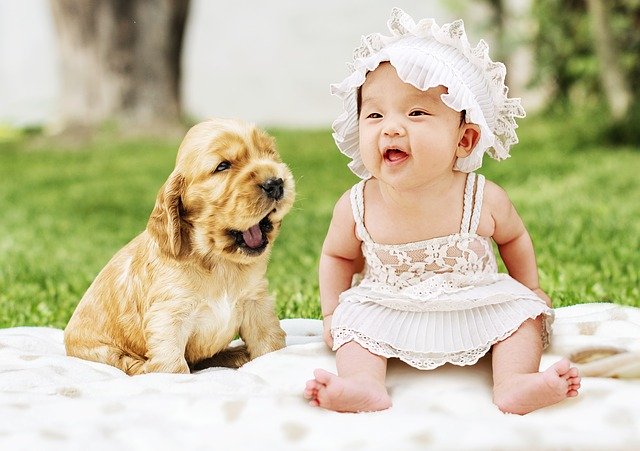The definition of instinct is: to behave in a way characteristic of a species; natural, unlearned, predictable response to stimuli. Instinctual actions are in contrast to actions based on learning.
So whose instincts am I talking about here, ours or our pets?
 The dog is just being a dog. He comes hardwired but we download new programs to help him assimilate into a human society. Our instincts on the other hand are controlled by our greater ability to reason, as well as our intelligence, conscience, experience, insight, emotions and need for accountability. Yet we will make an informed decision to ignore our gut feelings; our instincts, in situations of imminent danger. It has been documented that a woman will decide to ignore her gut feelings and enter an elevator with a stranger even if she’s fearful of bodily harm from that person.
The dog is just being a dog. He comes hardwired but we download new programs to help him assimilate into a human society. Our instincts on the other hand are controlled by our greater ability to reason, as well as our intelligence, conscience, experience, insight, emotions and need for accountability. Yet we will make an informed decision to ignore our gut feelings; our instincts, in situations of imminent danger. It has been documented that a woman will decide to ignore her gut feelings and enter an elevator with a stranger even if she’s fearful of bodily harm from that person.
More often than I care to think about, I receive calls from people whose households are terrorized by their dogs. These people are truly afraid of the dog they live with. The more times I say that out loud, the more I can’t believe it. The dog may be following its instinct to control the pack, by mouthing, biting, barking, jumping, and scratching. The person is ignoring their instinct to be afraid and makes an informed decision to accept the dog’s behavior and live with the fear and sometimes the ultimate reality, of being bitten, scratched and tormented by the dog.
I have asked myself many times, why would anyone choose to live with a dog, or cat or any other animal, that they are afraid of?
How many of us seek the thrills of a scary movie or an amusement park ride, even though our hearts may beat a little faster? We may sweat and close our eyes or even scream but we know that there’s a safety valve waiting in the wings because when the lights go on and the ride slows to a stop, we will be okay. But believe me when I tell you that there is no safety valve on your dog. If he is biting relentlessly or shows persistent hostility as a puppy, he will not outgrow it. The cute stage will diminish rapidly when you or a family member becomes the target of his uncontrollable instinct to bite.
You must learn to pay more attention to your own instincts; as the signs are very obvious. Don’t ignore  them. If you think your dog’s behavior is more than just the normal puppy prankster stage, the teething stage or the adjustment to a new home stage, talk to your veterinarian, the breeder the dog came from, or a professional trainer and don’t dismiss the too rambunctious nipping stage with the belief it is only a stage and he will grow out of it. Furthermore, by ignoring this negative, unwanted and potentially harmful behavior, you are “validating” it.
them. If you think your dog’s behavior is more than just the normal puppy prankster stage, the teething stage or the adjustment to a new home stage, talk to your veterinarian, the breeder the dog came from, or a professional trainer and don’t dismiss the too rambunctious nipping stage with the belief it is only a stage and he will grow out of it. Furthermore, by ignoring this negative, unwanted and potentially harmful behavior, you are “validating” it.
Caution: don’t rely on “happily ever after” TV families depicted as perfect dog/kid relationships. Not every kid completes a dog and not every dog completes a kid. They are two very distinct personalities and it’s not improbable to assume that these personalities at times can clash. Many breeds that have been falsely acclaimed as the “perfect dog for children” have been unfortunately dethroned due to random and unprovoked bouts of aggression, especially directed at the children of the household. Surprisingly enough, Cocker Spaniels and Beagles have made the list. The rise in popularity carries with it a rise in “not characteristic to the breed” behavioral issues and has tarnished the “Golden” reputation of the beloved Retriever and his close best friend, the Lab. Please read on and think about this. Is this less than desirable behavior, due to over breeding and in-breeding? My guess would be, it probably has a lot to do with it. The circumstances, in which the puppies live, during their first 2 months of life, probably play a big part in their development as well. Over crowding and lack of individual human attention, as well as taking puppies away from their mothers before they are ready to face the world, or before they have learned from their litter mates as well as their mother to know their role in a pack society, can cause emotional problems and the inability to adjust to new environments.
A new puppy should be a joyful addition to your family. If you know in your heart that this is not the right situation for your family and you are concerned about leaving your children in the same room with your dog, trust your instincts.






